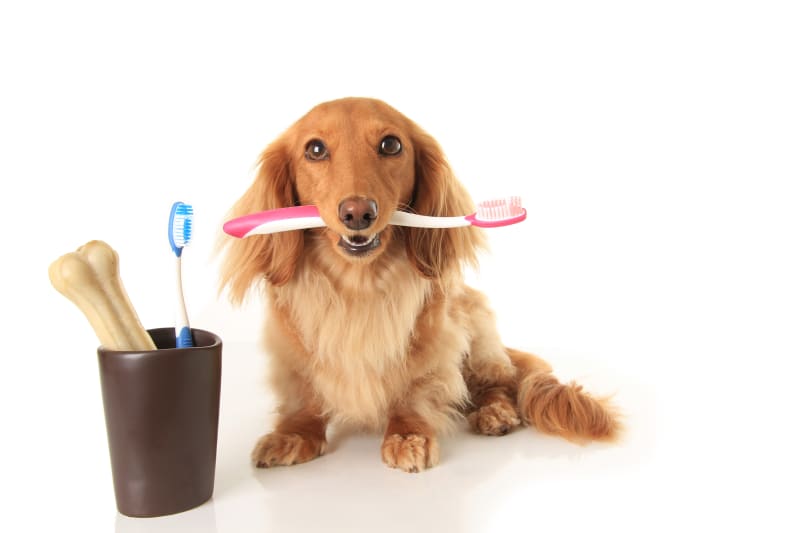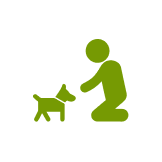In 24 cities

Keep Your Dog’s Teeth Clean & Their Breath Fresh
|
|
Time to read 2 min
Enter pincode
Please enter a valid pincode Enter the pincode to check delivery date
Enter the pincode to check delivery date
100% Authentic

Easy return policy

Help us ensure a smooth delivery
SIZE GUIDE
Written by: Dr.Jyothi Madhu
|
|
Time to read 2 min
Dental health is often overlooked, yet it’s crucial for your dog’s overall well-being. Plaque and tartar buildup can lead to gum disease, tooth loss, and even infections that affect the heart, kidneys, and other organs.
By maintaining good oral hygiene, you’re preventing painful conditions and costly treatments down the line. Fresh breath, healthy teeth, and strong gums contribute to a happier, healthier dog.
Plaque & Tartar Buildup: Forms on teeth and can harden into tartar, causing discomfort.
Gum Disease: Red, swollen gums can lead to tooth loss if untreated.
Bad Breath: Often a sign of bacterial buildup or infection.
Tooth Fractures or Abscesses: Can be painful and require professional treatment.
Recognizing these issues early allows for timely care and better outcomes.
Vet-Recommended Dental Chews: Designed to reduce plaque and tartar while freshening breath. Dogs see it as a treat, making dental care enjoyable.
Tooth Brushing: Use a dog-safe toothbrush and toothpaste to remove food particles and prevent buildup.
Healthy Diet: Dry kibble and dental-specific foods can support oral health.
Water Additives: Help reduce bacteria and maintain fresher breath.
Dental chews and brushing help, but regular vet visits are essential. Professional cleanings remove tartar that at-home care can’t reach and allow vets to check for:
Early signs of gum disease
Loose or damaged teeth
Oral infections
Combining home care with professional monitoring ensures long-term dental health.
Start slowly: Introduce toothbrushes and chews gradually.
Positive reinforcement: Reward your dog after brushing or dental treats.
Short sessions: Even a few minutes a day helps maintain oral hygiene.
Consistency: Daily or regular dental routines yield the best results.
1. How often should I brush my dog’s teeth?
Ideally, brush daily. If that’s not possible, aim for 3–4 times per week with dog-safe toothpaste.
2. Can dental chews replace brushing?
No. Chews are supportive but do not fully replace brushing. Combine both for optimal results.
3. What are signs my dog has dental problems?
Look for bad breath, red or swollen gums, difficulty chewing, drooling, or loose teeth.
4. Are professional dental cleanings necessary?
Yes. They remove tartar below the gumline that home care can’t reach and help prevent serious dental disease.
5. Are certain breeds more prone to dental issues?
Small breeds often develop dental problems earlier due to crowded teeth, but all dogs benefit from proper care.
6. Can dental health affect my dog’s overall health?
Absolutely. Poor oral health can contribute to heart, kidney, and liver issues, as bacteria from the mouth can enter the bloodstream.



In 24 cities

Happy pet parents

For every new member

Exclusive
2 item in cart
₹10,360


